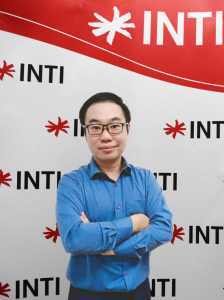Once considered an inherently sustainable industry, agriculture is currently confronted with notable environmental obstacles. Traditional farming methods have contributed to the depletion of resources, environmental deterioration, and soil contamination. However, in order to address these challenges, nanotechnology has emerged as a pioneering solution, providing precise and efficient practices for sustainable agriculture.
A study conducted by Prof. Dr. Wong Ling Shing from INTI International University’s Faculty of Health and Life Sciences, titled “Synthesis and Characterization of Magnesium Doped Ferric Sulphate Nanoparticles (Mg-Fe2SO3 NPs) for Agriculture Applications,” provides valuable insights into the advantages of using nanoparticles in agriculture, aiming to protect the environment.

Prof. Dr. Wong’s research titled “Synthesis and Characterization of Magnesium Doped Ferric Sulphate Nanoparticles (Mg-Fe2SO3 NPs) for Agriculture Applications” revealed nanotechnology as a promising and sustainable solution for agriculture, while effectively addressing the challenges posed by conventional farming practices.
“Nanoparticles, tiny particles measuring less than 100 nanometres, have gained considerable interest in recent years for their potential in enhancing crop yields, reducing pesticide use, improving plant nutrient uptake, and minimizing environmental impact. By modifying the surface properties of nanoparticles, this process enables more efficient fertilizer use and reduces soil pollution caused by excessive nutrient levels,” he said.
In the study conducted by Prof. Dr. Wong and his team, an experiment using magnesium-doped ferric sulphate nanoparticles on cowpea plants (Vigna unguiculata), was done to demonstrate a significant increase in seedling growth during the seed germination process.
“Nano-sized particles have the potential to transform current agricultural practices into precision cultivation by doping specific nanoparticles into plant nutrients. This development opens new avenues for maximizing agricultural productivity while maintaining sustainability,” he said, adding that the existing chemical fertilizers disturb soil mineral balance and decreases soil fertility.
Looking ahead, Prof. Dr. Wong emphasized that nanotechnology will play a pivotal role in increasing crop yields over the next decade. He envisioned a future where nano-inducers promote germination and growth, nano-fertilizers enhance yields, and nano-pesticides increase effectiveness and selectiveness in their functions.
“While nanotechnology in agriculture is still in its early stages, ongoing research will reach maturity and be widely adopted within the next ten years. These advancements hold great promise in addressing current challenges such as crop loss, resource scarcity, and environmental concerns,” he said, adding that environmental issues need to be critically addressed now more than ever.
In support of farming sustainability, Prof. Dr. Wong said further investigation into the potential impact of nanotechnology on sustainable farming practices should remain a priority within the agricultural research community.
“This technology can reduce the need for chemical pesticides and promote sustainable farming practices by creating slow-release fertilizers which minimize nutrient waste into the environment and increase soil fertility over time. It is safe to say that nanotechnology can pave the way for a more sustainable future in food production for our community,” he said.